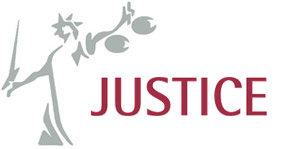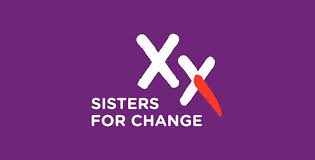November 2017
Migrants Resource Centre


Statelessness Training and Awareness Project
Grant: £40,000
November 13, 2017
The main aim of this project is to raise awareness, educate, and improve capacity relating to the UK’s statelessness determination procedure so that stateless persons in the UK have better opportunities to access appropriate assistance and advice and be granted leave to remain in the UK. Statelessness continues to be a relatively unknown problem, and stateless persons still face numerous barriers to accessing appropriate assistance and advice. In particular, because statelessness applications remain out of scope for legal aid, many stateless persons cannot find a competent legal advisor. Previous work (with LEF funding since 2015) has made significant progress, but there is still more to be done.
Going forward, the project will have five components:
- a new online course for legal practitioners;
- co-organisation of a conference on statelessness;
- continuation of a combination of complementary in-person and webinar training for lawyers, support organisations, community organisations, and stateless persons;
- expansion, updating, and promotion of the online educational tool for stateless persons (developed with 2015-17 funding); and
- other awareness-raising and information-sharing, through media, blogs, the UK Statelessness Forum, and contributions to research.
| Increase Public Understanding | Advance High Quality Thinking | Increase Access to Employment |
| People Working in the Law | ||
| Implications of Brexit | Legal Needs in Healthcare Settings | Influence the Online Court |
| Develop Robust Evidence Base | ||
| Understand Role of Technology | ||
| Law Reform, Policy and Regulation | ||
| Communications to Disseminate Learning | ||
Independent Parental Special Education Advice


Understanding the role of technology in achieving IPSEA’s strategic objectives
Grant: £10,000
November 13, 2017
This project will research and define the requirements for an IT solution to replace an existing database.
Using the findings of the previous evaluation and scoping project of IPSEA’s options for developing ICT systems, further investigate of the database requirements is now required. This is the first stage of a two-stage project, the second of which will be to identify and negotiate with potential suppliers and implement the proposed database solution.
This project will:
- Evaluate the capability of IPSEA’s existing database which is currently used as a case management and CRM system.
- Identify a solution to the limitations of the current database.
- Help IPSEA become compliant with the new GDPR laws.
IPSEA will use experts to assist with this project to make use of cutting edge information and communications technology and proven experience.
These experts will work with IPSEA’s staff, volunteers and beneficiaries to ensure they understand the needs of various groups of database users and service users, so that the proposed solution is fit for purpose. They will work with IPSEA to define the database functionality needed now and in the future before researching options and preparing a specification report.
| Increase Public Understanding | Advance High Quality Thinking | Increase Access to Employment |
| People Working in the Law | ||
| Implications of Brexit | Legal Needs in Healthcare Settings | Influence the Online Court |
| Develop Robust Evidence Base | ||
| Understand Role of Technology | ||
| Law Reform, Policy and Regulation | ||
| Communications to Disseminate Learning | ||
Ipswich and Suffolk Council for Racial Equality


Health Justice Partnership in Suffolk
Grant: £19,855
November 13, 2017
The project aims to improve understanding of how social prescribing in health settings could increase access to social welfare legal advice in Suffolk and reduce health spend by researching current practice and building a robust business case for local health commissioners to fund local advice services to develop and run an effective model of future delivery.
Currently, social prescribing activities in Suffolk are small scale, sporadic and little is known about their nature or the extent of their impact, which is a challenge for advice services seeking to develop a more cohesive, strategic structure for support. The project will address this by identifying existing activities within the county and, by using a mix of quantitative and qualitative methods, summarise the nature of these activities and the extent to which they are successful in increasing access to social welfare legal advice.
The project will examine the challenges faced by those providing social prescribing activities in the county and summarise perceived gaps and areas for improvement, in addition to potential opportunities, with a view to informing development of a Business Plan. The research will also draw upon best practice from elsewhere in the UK by researching five case studies of social prescribing activities that are considered to be successful models and use them to design a suitable Suffolk model.
| Increase Public Understanding | Advance High Quality Thinking | Increase Access to Employment |
| Developing Income Streams | ||
| Implications of Brexit | Legal Needs in Healthcare Settings | Influence the Online Court |
| Develop Robust Evidence Base | ||
| Understand Role of Technology | ||
| Law Reform, Policy and Regulation | ||
| Communications to Disseminate Learning | ||
Fair Trials International


The future of UK criminal justice – securing human rights post-Brexit
Grant: £45,353
November 13, 2017
This project will enable UK legal experts, with a long track-record of EU criminal justice experience, to remain engaged in the Legal Experts Advisory Panel (LEAP) in order to:
- Inform the shape of criminal justice in post-Brexit UK and the nature of the UK’s criminal justice co-operation with Member States; and
- Sustain relationships between UK experts and counterparts in Europe vital to protecting the rights of defendants in cross-border cases.
With a decade’s experience informing policy and defending fundamental rights in the UK and Europe, British LEAP members have an important role to play during Brexit negotiations and beyond, particularly as it is likely that on-going security co-operation across borders will make continued engagement with European counterparts essential.
| Increase Public Understanding | Advance High Quality Thinking | Increase Access to Employment |
| People Working in the Law | ||
| Implications of Brexit | Legal Needs in Healthcare Settings | Influence the Online Court |
| Develop Robust Evidence Base | ||
| Understand Role of Technology | ||
| Law Reform, Policy and Regulation | ||
| Communications to Disseminate Learning | ||
Justice


Administrative Justice Council (AJC)
Grant: £25,000
November 13, 2017
The provision of a secretariat function to UK’s only advisory body on administrative justice, bringing together senior representatives of the judiciary, civil service, government, ombudsmen and end user organisations to improve decisions, complaints and appeals across critical areas including immigration, asylum, social security, housing, education, health care, planning and tax. Those affected by the system include some of most vulnerable in society: asylum seekers, immigrants, those in social housing and/or claiming benefits, people with disabilities or special educational needs, prisoners, pensioners and victims of police misconduct.
The AJC will be under-pinned by JUSTICE’s research and policy capacity and supported pro bono by a number of law firms. Acting as a liaison between Government, the judiciary and users of the administrative justice system, the Council would aim to fulfil its predecessor’s information sharing function whilst adding a more problem-solving and policy-influencing dimension.
Supported by the Ministry of Justice, led by Sir Ernest Ryder and managed by JUSTICE, this initiative will sit alongside current and future administrative justice work.
| Increase Public Understanding | Advance High Quality Thinking | Increase Access to Employment |
| People Working in the Law | ||
| Implications of Brexit | Legal Needs in Healthcare Settings | Influence the Online Court |
| Develop Robust Evidence Base | ||
| Understand Role of Technology | ||
| Law Reform, Policy and Regulation | ||
| Communications to Disseminate Learning | ||
Fair Trials International


Addressing the IT needs of Fair Trials – implementation phase
Grant: £39,689
November 13, 2017
The commissioning of an expert IT consultant to conduct a thorough review of IT systems and hardware culminated in a detailed report and the creation of an Invitation to Tender which was sent out to six suppliers in early September 2017. Interviews were conducted with four suppliers and the best selected. Implementation across the organisation is the next stage.
This project is to implement the findings and recommendations of the consultant to complete this upgrade.
| Increase Public Understanding | Advance High Quality Thinking | Increase Access to Employment |
| People Working in the Law | ||
| Implications of Brexit | Legal Needs in Healthcare Settings | Influence the Online Court |
| Develop Robust Evidence Base | ||
| Understand Role of Technology | ||
| Law Reform, Policy and Regulation | ||
| Communications to Disseminate Learning | ||
Sisters for Change


Securing an inclusive and effective Domestic Violence & Abuse Act
Grant: £61,734
November 13, 2017
The Queen’s Speech in June 2017 announced a new Domestic Violence and Abuse Bill (DV&A Bill). It is critical that this legislation is inclusive, addressing the needs and realities of all women victims of domestic abuse in England, including BME victims and non-UK citizens, and remedies the weaknesses of the current legal and policy framework.
Through this project, Sisters For Change will:
- Provide legal education and technical legal support to Black and Ethnic Minority (BME) Violence Against Women (VAW) service providers to enable them to participate in the legislative consultation process relating to the Bill.
- Educate Parliamentarians and Government officials about the complexities of domestic abuse, with specific emphasis on BME women victims; the weaknesses of the current legal framework; and priorities for reform.
- Advocate at the national and local level to influence the content of the DV&A Bill and ensure legislation that provides effective protection and support for all women victims.
| Increase Public Understanding | Advance High Quality Thinking | Increase Access to Employment |
| General Public | ||
| Implications of Brexit | Legal Needs in Healthcare Settings | Influence the Online Court |
| Develop Robust Evidence Base | ||
| Understand Role of Technology | ||
| Law Reform, Policy and Regulation | ||
| Communications to Disseminate Learning | ||
Advice Services Alliance


Scoping Study for On Line Peer Review Platform for the Advice Quality Standard (AQS)
Grant: £17,468
November 13, 2017
The Advice Quality Standards (AQS) is fully owned by the Advice Services Alliance and is currently held by just under 700 separate social welfare legal advice services. The AQS includes a requirement for advice services to undertake independent file reviews of the work undertaken. Whilst all organisations see the benefit of independent review, it is often very difficult on a practical level to achieve, particularly for small advice centres.
Based on the ASA experience of establishing a peer review system with one member organisations, it is thought that an on-line peer review system might potentially provide a simpler and more effective mechanism for undertaking independent review which could additionally bring many other benefits (for example, development opportunities for case workers). In order to establish the parameters of such a project, a scoping study will be performed, to:
- Identify the potential market for such a platform amongst advice services providers in England and Wales and support amongst key stakeholders and clarify objectives
- Undertake a technical scoping exercise for such a platform, the current level of IT used and associated process re-engineering
- Assess the long term financial sustainability of the model.
| Increase Public Understanding | Advance High Quality Thinking | Increase Access to Employment |
| People Working in the Law | ||
| Implications of Brexit | Legal Needs in Healthcare Settings | Influence the Online Court |
| Develop Robust Evidence Base | ||
| Understand Role of Technology | ||
| Law Reform, Policy and Regulation | ||
| Communications to Disseminate Learning | ||
British Institute of Human Rights


An online educational tool: human rights in health and care
Grant: £100,000
November 13, 2017
This project builds on key points from face-to-face education to develop an online educational tool to help patient advocates, advisers, and health/care professionals to use human rights to support patients, securing their rights and protecting them from neglect or abuse and unfair treatment. Whilst people can use the tool to self-advocate, the target will be the many organisations/agencies charged with supporting patients, particularly those with mental health/capacity issues. This includes people living with dementia, autism and/or learning disabilities. Our interactive tool will enable patients/advocates/health workers to identify whether a person’s rights may be at issue and then take them through a series of practical steps and tools to resolve this pre-litigation (e.g. sample letters and worked examples).
| Increase Public Understanding | Advance High Quality Thinking | Increase Access to Employment |
| Staff in Voluntary Sector | ||
| Implications of Brexit | Legal Needs in Healthcare Settings | Influence the Online Court |
| Develop Robust Evidence Base | ||
| Understand Role of Technology | ||
| Law Reform, Policy and Regulation | ||
| Communications to Disseminate Learning | ||
Liberty


Ensuring a Human Rights-Compliant Brexit
Grant: £80,092
November 13, 2017
Liberty will undertake research, monitor actions of public officials, and produce expert publications targeted to audiences to provide robust and accurate information about the human rights implications of Brexit.
These publications will include:
- briefings to parliamentarians and policymakers who are struggling to grasp wide-ranging and complex issues;
- white papers intended for an expert audience grappling with the nuances of law and policy; and
- accessible public communications designed to ensure that facts are not overwhelmed by soundbites around Brexit.
These publications will focus on:
- the risk human rights protections will be rolled back and democratic scrutiny undermined in the process of incorporating European Union (EU) law after Brexit;
- the risk human rights protections will be eroded in the process of direct negotiations between the UK and the EU over international agreements implicating justice, security, data protection, immigration and asylum.
The project leverages Liberty’s expertise, supporting the work of other organisations working toward similar goals to educate parliamentarians and policymakers through briefings and media advocacy. Liberty will collaborate closely with AIUK and the Public Law Project (PLP), play an active role in the “Repeal Bill Alliance” hosted by Unlock Democracy, and participate in the forthcoming Bingham Centre Expert Working Group.
| Increase Public Understanding | Advance High Quality Thinking | Increase Access to Employment |
| People Working in the Law | ||
| Implications of Brexit | Legal Needs in Healthcare Settings | Influence the Online Court |
| Develop Robust Evidence Base | ||
| Understand Role of Technology | ||
| Law Reform, Policy and Regulation | ||
| Communications to Disseminate Learning | ||
Select by Objective
Select by Theme
Select by Tool
Select by Grantee
Grantees
Select by Date
Grants Archive
Search
